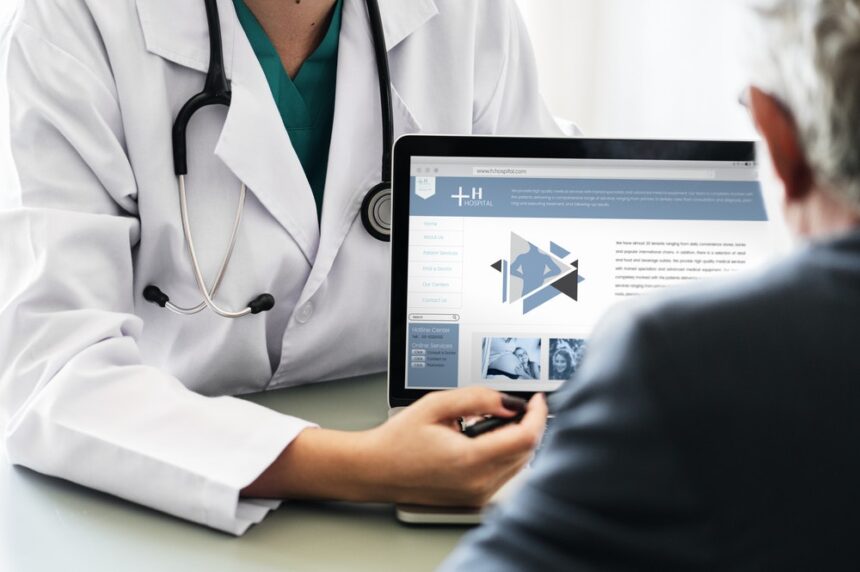It?s a common complaint among medical professionals and administrators: patients are bad at communicating. But what if the problem with healthcare communication doesn?t rest on patients, but stems from the systems that doctors use to connect with their clients? If that?s the foundation of the problem, then the pressure falls on medical systems to make it easier for patients to stay in contact with their doctors.
Check Your Phones
Right now, medical offices largely rely on two different systems: traditional phone communications and eHealth platforms like patient portals, and each of these comes with its own advantages and disadvantages. Phones systems, for example, are unpopular with patients because they are simply inconvenient. Often, office reception desks are closed for the lunch hour when working patients are finally available, and they also rely on clunky menus to direct clients to the right department. Patients are often stymied by these systems and just want to speak to a person who can direct them to the right place, especially if they aren?t sure exactly what kind of help they need. Of course, medical offices can?t just ditch their phone systems, but there are better ways to help patients get the information they need when calling your office. One key first step is to reorganize office schedules so that patients can call during typical lunch hours. This may require staggering staff lunch or developing an alternative break structure, but will improve the patient experience. It?s also important to make sure that there are employees working in reception who speak multiple languages. About 9 out of 100 Americans have limited English proficiency, and if those patients can?t reach support staff who fluently speak their language, they will simply give up on calling.
Who?s My Doctor?
Perhaps a more surprising reason why patients don?t communicate with their doctors as much as they should is that a large number of patients don?t remember their doctor?s names. In fact, studies show that 50% of patients don?t remember the names of the doctors who removed their gallbladder, operated on their cataracts, or performed their colonoscopies, even if those things happened in the past two years. After all, those who are in generally good health only see their doctor once a year ? if they have insurance ? while those with serious health problems often see so many specialists that they all blur together. The fact is that today?s healthcare system doesn?t look like that of years past when people saw the same family physician for decades. If you want patients to remember you, you need to make an impact; unsurprisingly, a much larger portion of patients remember the name of the obstetrician who delivered their baby because the moment was so important, or the doctor who held their hand during cancer treatment. Whether you work in a specialty where patients are likely to forget your name because they only see you occasionally or if you want to make sure patients are encouraged to reach out to you, you need to be proactive. Make sure you always have business cards on hand ? colorful business cards are best because they?re more likely to capture patient?s attention ? and encourage your patients to keep them in their wallets. You should also be forthright about who patients are likely to speak to if they call you. Patients can feel let down if they call their doctor and get a call back from a nurse or an assistant; introducing them to the right people and clarifying who works with you to support their care can help form important connections.
Examine eHealth Systems
Finally, an increasing number of patients are communicating with their doctors via ehealth, which includes a rapidly growing marketplace of portals, self-service terminals, and other devices that organize communication, records, and appointments. With so many different products on the market, though, are you offering your patients the best possible ehealth solution? While some of these products are great, others are virtually inaccessible and hard to navigate. If you want patients to use your portal or communication program more often, one thing you can do is to focus on interoperability. Ideally, your portal should work in conjunction with that of other doctors you regularly refer out to, synchronizes easily with various medtech products like blood pressure cuffs, and has an app that allows patients to access the portal wherever they are. If patients can send a message as soon as a concern occurs to them, they?re more likely to reach out; otherwise minor health concerns tend to get put on the back burner. One of the major advantages of using a patient portal, though, is that it can sidestep the issue of patients not remembering their doctors? names. All they have to do to find out who they see for healthcare is log on and look at the menu. These systems can also automatically keep patients abreast of important information like when upcoming appointments are and what immunizations or test they?re due to have. In other words, patients don?t have to actively communicate with their doctors to be engaged patients. Patients? failure to communicate with their healthcare providers often has less to do with unwillingness or disinterest in their own health, but with difficulty navigating a complex healthcare system. When medical professionals and administrative support teams create customer-oriented communication systems, though, patients step up to the plate. Patients want high-quality care and they want to participate in their medical care; most just don?t know where to start.








